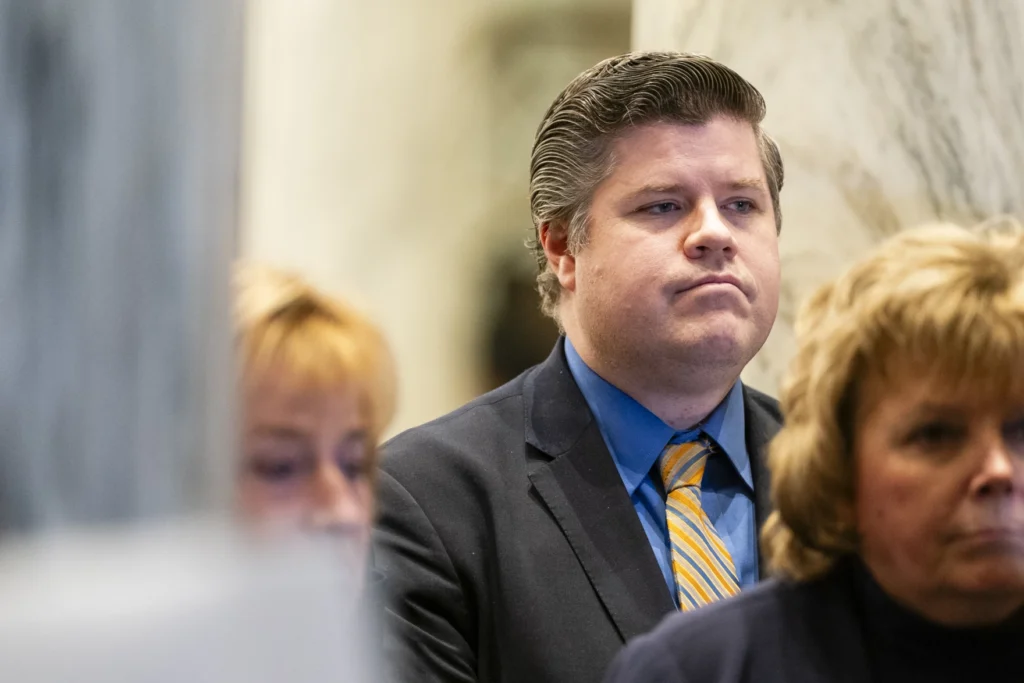The Missouri Senate has approved House Bill 594, which aims to eliminate the capital gains tax in the state, with some amendments. The bill, passed on Monday, now returns to the House for further approval. Supporters argue that removing the tax will boost Missouri’s economic growth, while opponents raise concerns about potential budget shortfalls and the benefits for the wealthy. The bill includes changes to both personal and corporate tax policies, with some provisions only triggered by state economic growth.
Missouri Senate Approves Tax Cut Proposal
On Monday, the Missouri Senate voted in favor of a House bill to eliminate the state’s capital gains tax. The decision was made after a series of debates and proposed changes. Capital gains taxes are levied on the profits from the sale of assets like real estate, stocks, and other investments.
Support for the Bill
Supporters of the bill, including its sponsor, Sen. Curtis Trent (R-Battlefield), believe that ending the capital gains tax will create jobs, attract businesses, and ultimately help Missouri’s economy thrive. In a statement, Sen. Trent emphasized the bill’s aim to provide tax relief that would benefit the average Missourian and encourage economic growth.
“We’ve crafted a package that does what we were primarily seeking to do, which is provide tax relief that is aimed at helping the average person in Missouri, that is aimed at creating economic growth, that is aimed at helping our state attract more businesses, more jobs, more opportunity,” Sen. Trent explained.
Opposition to the Proposal
However, not everyone is in favor of the bill. Some Republicans, along with Democrats, have expressed concerns about the impact on Missouri’s budget and the potential benefits for the wealthy. Critics argue that removing the capital gains tax would mostly benefit the state’s wealthiest individuals and could lead to significant budget shortfalls.
Sen. Maggie Nurrernbern (D-Kansas City) voiced her opposition during the floor debate, saying, “We’re talking about very few folks that this would benefit. We’re underfunding public education at the same time we’re giving a $300 million tax credit to our most wealthy individuals.” Nurrernbern raised concerns that the state budget, which has yet to be finalized, should prioritize funding for public schools over large tax cuts.
Tax Impact on State Revenue
The version of House Bill 594 approved by the Senate includes a cut in the capital gains tax for individuals, with a potential future removal of the corporate capital gains tax. However, the corporate tax cut would only be triggered if specific economic growth milestones are met in Missouri.
According to the fiscal impact note attached to the bill, eliminating the capital gains tax on personal income could result in a loss of more than $100 million annually for Missouri’s general revenue fund. The potential loss in revenue has raised concerns among critics, especially as the state faces challenges in funding public services, such as education and healthcare.
Other Tax Measures in the Bill
The Senate’s version of the bill also includes additional tax-related provisions. Among them is a proposal to exempt diapers and feminine hygiene products from sales tax. These measures are seen as part of a broader effort to provide tax relief to residents.
A Busy Legislative Session
Tax cuts have been a prominent issue in Missouri’s legislative session this year, with several other bills moving forward that propose reductions or eliminations of various taxes, including the state income tax. The legislature is currently working on finalizing the state budget for the upcoming year, which will be reviewed by both the House and Senate.
The Missouri Senate approved the revised House Bill 594 by a vote of 27-6. If the House agrees to the Senate’s changes, the bill will proceed to the governor’s desk for final approval.
As the bill returns to the House, lawmakers will have to decide whether to accept the Senate’s changes. If approved, the measure could become law, significantly altering Missouri’s tax structure. Supporters hope that the move will stimulate economic growth, while critics remain concerned about the long-term consequences for the state’s budget and public services.

